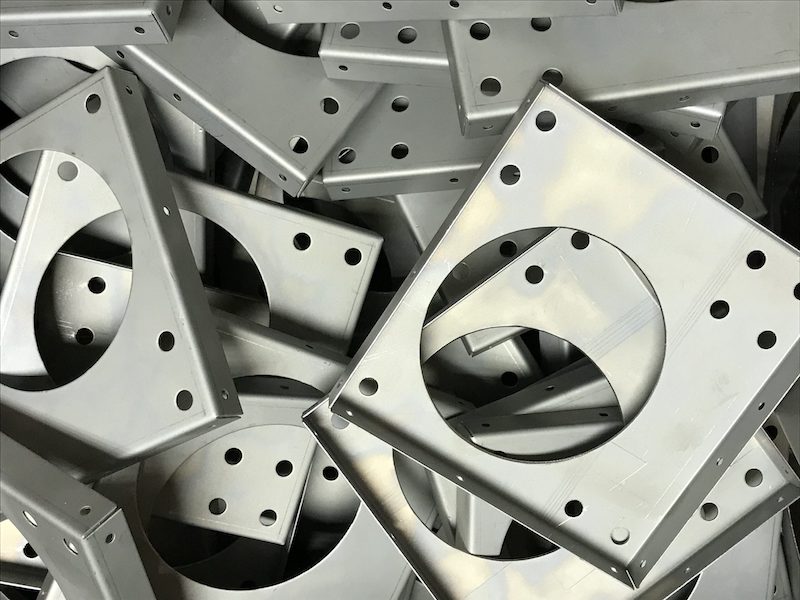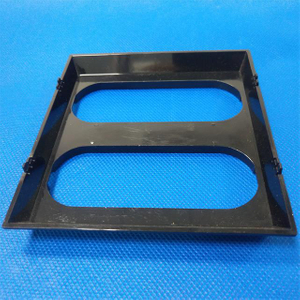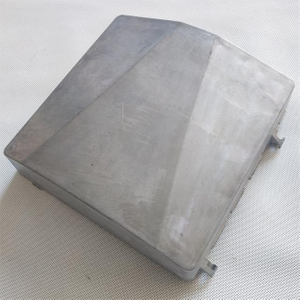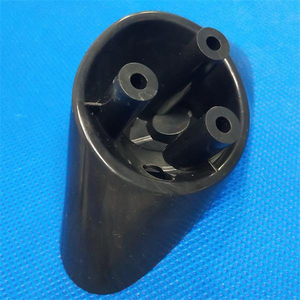There are various types of sheet metals you can use in fabrication. Construction, aerospace, automotive, and medical industries use different sheet metal varieties to complete their production goals. With today's manufacturing technology, you can use different sheet metal types to create various products with utmost precision and accuracy.
The Fabrication Process of Sheet Metal Types
Sheet metal fabrication undergoes several steps until you get to the end product. Here's the fabrication process of sheet metal:
• Product Design
Sheet metal fabrication starts with 3D product design using CAD software. The blueprint will contain important information, such as measurements, features, folding spots, product shapes, geometrical intricacies, and more. Next, you need to submit the blueprint to the sheet metal equipment.
• Material Preparation
Before operating the sheet metal equipment, prepare the sheet metals and put them into the machinery. Place enough sheet metal items based on the product blueprint you have submitted before. Next, configure the machinery to work on the sheet metal fabrication by following the design blueprint.
• Sheet Metal Types Fabrication
You can perform sheet metal fabrication automatically or manually. Automatic sheet metal machinery will use computerization and robotics. Bending, forming, and folding are among the processes of fabrication of sheet metals. It follows the design requirements with precision and accuracy. This process will end after forming the sheet metals into your desired product shape.
• Sheet Metal Types Finishing Process
The fabrication process of sheet metals might leave some dents and other problems on the product surface. It is where the finishing process becomes necessary in your production. The finishing process will allow you to coat the surface of sheet metal products to add more corrosion resistance and other features. It will also improve the surface finish of your sheet metal products before sending them for assembly.
Sheet Metal Types Varieties
Sheet metals come in different types and characteristics. Some are steel-based, and others are aluminum-based. Each sheet metal variant has unique characteristics that will benefit your manufacturing projects. Here are the sheet metal varieties you can use in fabrication:
• Carbon Steel
Steel infused with carbon at varying degrees. This sheet metal variety has different levels of carbon in its steel alloy. Higher levels of carbon mean more versatility and flexibility for the sheet metal, suitable for making wires and other delicate items. Lower carbon levels will keep the sheet metal material sturdy and durable for extreme uses, which you can use for making fences and other sturdy items. Meanwhile, medium-carbon steel sheet metals provide versatility and sturdiness in balance, which are suitable for making vehicle bodies.
• Stainless Steel
It is a steel material combined with chromium to produce the best anti-corrosion feature. It is the metal sheet variety you will use for creating products commonly exposed to high moisture. The higher chromium element can prevent rusting for long-term use, which is excellent for making structural frames, sinks, pipes, and more.
• Aluminum
Lightweight, durable, and anti-corrosion. Aluminum is your choice of sheet metal if you need to build lightweight components for various environments. This sheet metal can withstand high temperatures. It is perfect for applications that require constant heat. You can still get a nice polished surface from this sheet metal without applying additional finishing treatments.
• Alloy Steel
It is a steel sheet metal material that contains various elements. It consists of primary carbon elements with additional tungsten, chromium, and manganese. Different percentages of these materials exist on different alloy steel grades. Alloy steel sheet metal offers strength and affordability for various manufacturing operations.
• Galvanized Steel
It is a type of steel sheet metal that has a zinc coating on top of it. Galvanization is the process you use to coat zinc into the primary steel material. Galvanized steel has two primary types you can use in sheet metal fabrication, namely the hot-dipped metallic sheets and electro-galvanized sheets. The former is more corrosion-resistant than the latter.
• Tool Steel
You can use tool steel to build various tools, as this sheet metal type is resistant to abrasion. Hammers and knives are the usual applications for this sheet metal type. The steel in this sheet metal contains 1% carbon with an adjustable level of sturdiness depending on the elements. This sheet metal variation can also work well in extreme temperatures.
Choosing the Right Sheet Metal Types
Using the best sheet metals for your project is essential for your production success. Here are some tips for choosing the best sheet metals:

• Strength and Durability on Different Sheet Metal Types
Each sheet metal material has different strength and durability characteristics. Various strength and durability levels will also be best for various industrial applications. For instance, developing a vehicle body frame will require sheet metals with superior strength and durability. Meanwhile, you don't need the same strength and durability when you develop wires for electricity circuits.
• Corrosion Resistance
Anti-rust is an important feature you need to get from the sheet metal materials you use. Protecting the components or parts from corrosion can help lengthen their overall lifecycle. This feature will allow you to use the components in various conditions, including damp environments. Some sheet metals have better anti-corrosion resistance than others.
• Industrial Applications
Different industrial applications require different sheet metal types. The sheet metal standards used in the medical industry will differ from standards used in the automotive industry.
• Weldability and Formability
Welding and forming are essential sheet metal operations you must undergo during fabrication. Not all sheet metals have good weldability and formability. For instance, titanium and aluminum are the sheet metal types with the worst weldability factor. Sheet metals with high strength will also be more challenging to form. Consider the weldability and formability factors before choosing the best sheet metals for your project.
• Production Costs on Different Sheet Metal Types
Using lower-grade sheet metals means a lower production cost for you. Always balance the quality of the sheet metals with the money you pay for them. Use only the best-value sheet metals to help lower your production costs while keeping your output quality high.
Conclusion
Sheet metals range in their quality and characteristics. Always analyze your project requirements before picking the best sheet metal varieties for your production. Understand each sheet metal's characteristics and follow the guidelines to choose the best-value sheet metals for your project.

Besides from sheet metal fabrication, TEAM MFG also offers rapid prototoyping, injection molding, and CNC machining to meet your needs. In the past ten years, we helped lots of customers to launch their projects successfully. Send us email at ericchen19872017@gmail.com





















